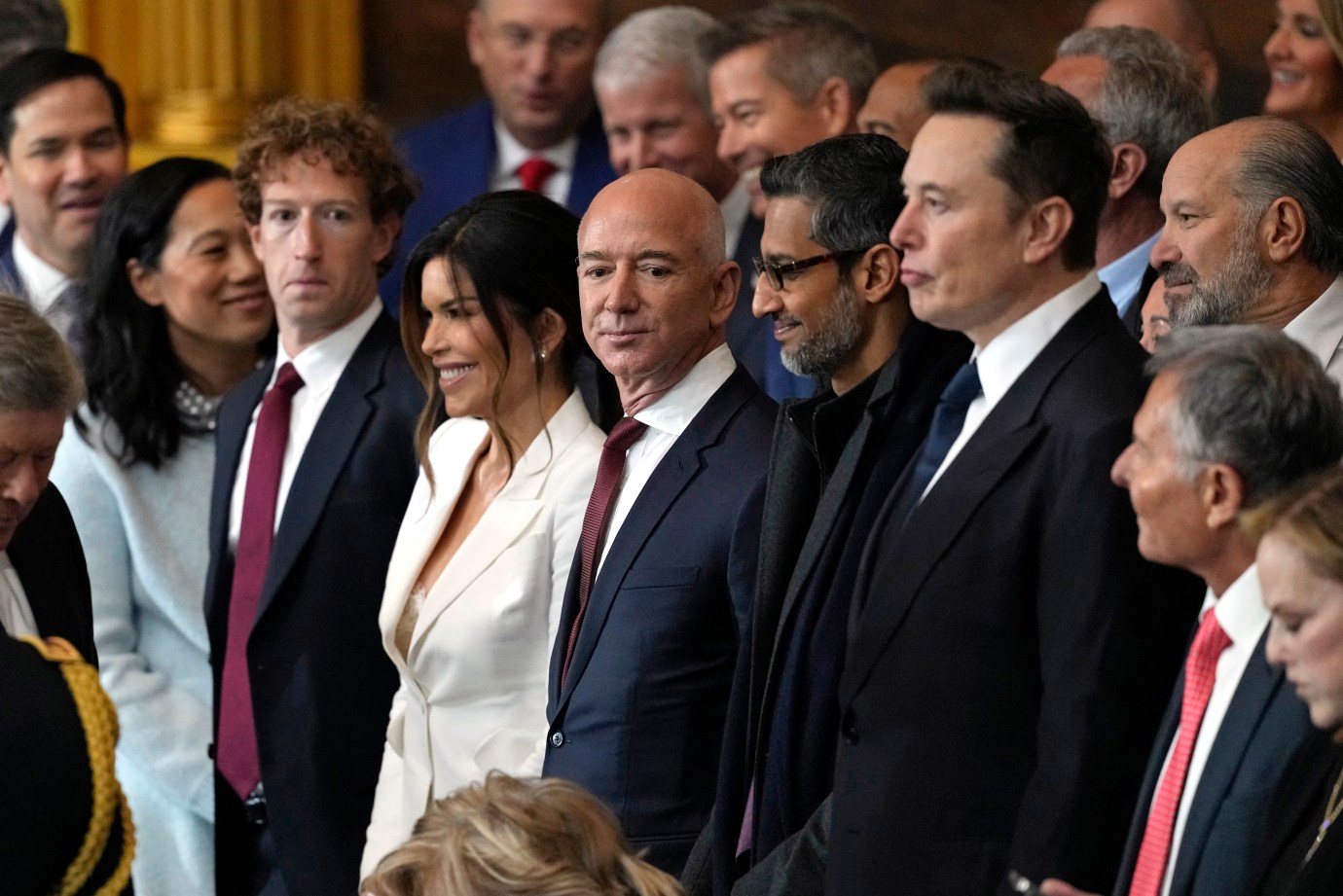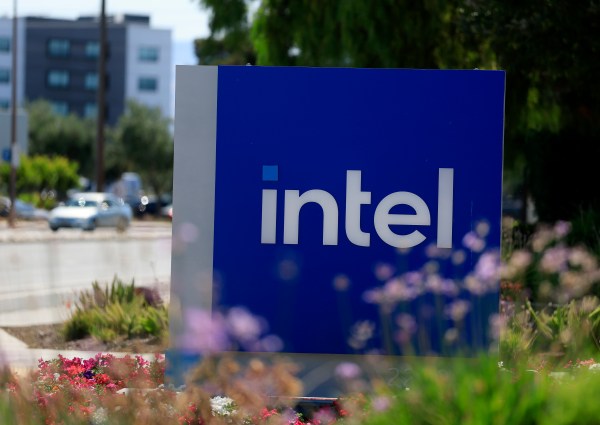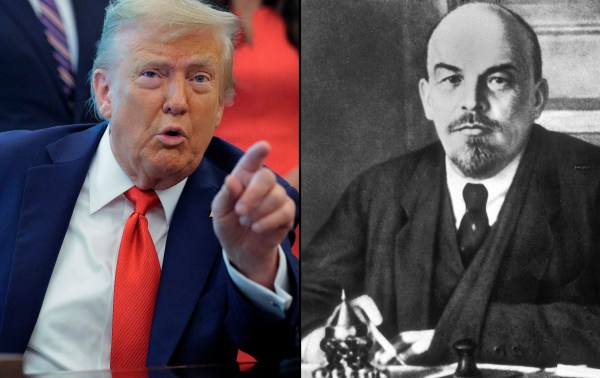Happy Thursday! British politician Jeremy Corbyn—the socialist and former Labour Party leader who has repeatedly affiliated with the terror group Hamas and was ultimately suspended from the party over his handling of antisemitism—founded his own party last month, named “Your Party.” He’s now soliciting suggestions for the party name from the internet. Notable suggestions so far include Jezbollah, The People’s Front of Judea, and the classic Party McPartyface, among others.
Quick Hits: Today’s Top Stories
- On Wednesday morning, a shooter fired on a group of schoolchildren attending morning mass at a Catholic church in Minneapolis, killing two and injuring 17 others. The two children who died were 8 and 10 years old, and 14 of those injured were also children. The 23-year-old shooter—a former student at the school whose mother formerly worked in the school office—died of a self-inflicted gunshot wound in the church parking lot. Investigators have not named a motive, but federal officials have said they are treating it as a hate crime targeting Catholics and an act of domestic terrorism, and are reviewing scheduled social media posts and writings of the shooter.
- Centers for Disease Control and Prevention Director Susan Monarez was fired on Wednesday, reportedly for conflicts with Health and Human Services Secretary Robert F. Kennedy Jr. Four other CDC leaders resigned Wednesday: Chief Medical Officer Dr. Debra Houry; National Center for Immunization and Respiratory Diseases Director Dr. Demetre Daskalakis; National Center for Emerging and Zoonotic Infectious Diseases Director Dr. Daniel Jernigan; and Office of Public Health Data, Surveillance and Technology, Director Dr. Jennifer Layden. Monarez had been confirmed as director last month by a Senate vote.
- The Department of Transportation will take over management of Washington, D.C.,’s Union Station from Amtrak, Secretary of Transportation Sean Duffy announced Wednesday, framing the move as part of President Donald Trump’s vision for combating what he characterized as persistent disorder at the city’s main transit hub. D.C. Mayor Muriel Bowser endorsed the move at a separate press conference, claiming that the federal government could make investments in infrastructure and repairs that the city’s government could not afford to make.
- Russian troops have advanced into another region of Ukraine, according to Ukrainian officials Wednesday, as Russia seeks to expand its offensive while selectively engaging in U.S.-led peace efforts. Russian forces have reportedly moved into two villages in the Dnipropetrovsk region, which borders the Donetsk Oblast, a longstanding epicenter of combat. European allies are currently negotiating with the U.S. on possible security guarantees and peacekeeping forces for Ukraine, although a Kremlin spokesman said on Wednesday that the presence of NATO troops in Russia would be unacceptable.
- The head of the U.S. Embassy in Denmark was summoned for a meeting with Danish officials on Wednesday. The diplomatic rebuke comes after the Danish state broadcaster published a story alleging that three U.S. citizens with ties to the White House were attempting to run cover for “influence operations” in Greenland. “We are aware that foreign actors continue to show an interest in Greenland,” said Lars Lokke Rasmussen, Denmark’s foreign minister. It is the second such incident in recent months, after the U.S. ambassador was summoned in May following reports that U.S. intelligence was increasing its focus on the strategically important island.
- Reuters reported Wednesday that Britain, Germany, and France, known as the E3, are likely to begin the reimposition of U.N. sanctions of Iran on Thursday, due to Iran violating the 2015 nuclear deal that sought to curb its weapons programs. Representatives of all sides had met on Tuesday, but European diplomats reportedly did not receive sufficient commitments from Iran to hold off from imposing “snapback” sanctions. On Wednesday, International Atomic Energy Agency Director Rafael Gross said that while IAEA inspectors had been allowed back into Iran, their access to nuclear facilities was a “work in progress.”
- The newest round of COVID-19 vaccinations were subjected to a limited approval by the Food and Drug Administration on Wednesday, a shift from previous approvals that authorized the vaccines for large numbers of people. Shots will only be approved for those ages 65 and up and people with a condition that makes them more likely to suffer from severe disease. “The emergency use authorizations for Covid vaccines, once used to justify broad mandates on the general public during the Biden administration, are now rescinded,” wrote Health and Human Services Secretary Robert F. Kennedy Jr., on social media Wednesday. “These vaccines are available for all patients who choose them after consulting with their doctor,” he said, although it is unclear how the limited authorization will affect insurance reimbursement for the vaccines.
Offers You Can’t Refuse

A few weeks ago, chip maker Intel looked to be in a bad spot. In recent years, it had lost its most notable customer, Apple; missed out on the AI wave that skyrocketed the share prices of its competitors; and earned an industry-wide reputation for mismanagement and poor planning. Then it got worse. In an April report, Reuters uncovered that new CEO Lip-Bu Tan had invested in more than 600 Chinese companies, seven of which had ties to the Chinese military. On August 6, Sen. Tom Cotton of Arkansas sent a letter to Intel’s board expressing concern. A day later, President Donald Trump took to Truth Social, writing that Tan was “highly CONFLICTED,” and called for his immediate resignation. Intel’s share price fell 3 percent.
But on August 11, Tan met Trump at the White House, a meeting the president called a “success”—perhaps because he’d made an offer that Intel couldn’t refuse. On August 22, Trump confirmed the U.S. government would, as Dispatch contributor Scott Lincicome put it, “be magically converting the billions in subsidies promised to Intel via the CHIPS Act and a separate defense-related program into a roughly 10 percent equity stake in the ailing U.S. chipmaker, thus making Uncle Sam its biggest shareholder.” Intel was no longer a target of Trump, but a partner.
During his second administration, the relationship between Trump and Silicon Valley has flipped: Tech executives once shied away from a president who repeatedly attacked “Big Tech,” they now actively seek his favor—and receive preferential treatment in return.
The shift began before he even took office.
In January, Amazon, Meta, and Google each contributed $1 million to Trump’s inaugural fund, which Meta CEO Mark Zuckerberg and Apple CEO Tim Cook matched with personal donations of their own. And whereas Trump’s first inauguration had few executive attendees, his second was packed with them. Elon Musk—who, according to FEC filings, contributed $288 million toward Trump’s 2024 campaign efforts—was joined in the front row by Amazon founder Jeff Bezos, Google CEO Sundar Pichai, TikTok CEO Shou Zi Chew, plus Cook and Zuckerberg.
TikTok also spent $50,000 on an inauguration event featuring Trump-supporting TikTok influencers. On his first day in office, Trump issued an executive order to delay the video-based platform’s ban in the U.S.
Though many Silicon Valley workers were disappointed by the attendance by their bosses, the move paid off—particularly when it came to tariffs.
Apple lost $640 billion in market value following Trump’s April 2 tariff announcement, but shortly after, Trump exempted phones, computers, semiconductors, and other electrical components from his newly announced levies on China. Then, in early August, Trump invited Apple’s CEO to the White House to announce that the company’s four-year, $500 million domestic manufacturing plan would be increased to $600 million. At the same event, Trump announced plans to impose a 100 percent tariff on all semiconductor imports but stated that companies that invest in the U.S., such as Apple, would be exempt. “If you’re building, there will be no charge,” he said. As a measure of appreciation, Cook extended Trump a circular, glass plaque fitted with a 24-karat gold base.
Meanwhile, Trump is no longer threatening to jail Zuckerberg—who he previously said had orchestrated a “PLOT AGAINST THE PRESIDENT” by contributing funds in 2020 toward election administration. Instead, on Tuesday, Trump praised Meta’s plans to build a $50 billion AI data center in Louisiana.
More and more companies are learning that not only is Trump willing to strike a deal, but that such an agreement could give them an edge over market competitors. Citing national security concerns, in April the Trump administration barred Nvidia and Advanced Micro Devices (AMD) from selling their advanced chips to China.
But the author of The Art of the Deal struck an unusual arrangement with the companies last week.
With the president’s approval, Nvidia and AMD will now resume selling their AI chips to China—so long as they hand over 15 percent of revenue generated from the sales to the U.S. government. Though 15 percent of revenue from such deals is not a negligible amount of money—it could garner an estimated $1.35 billion from Nvidia during this quarter alone—it remains a better deal for the companies than letting Trump extinguish its entire Chinese AI chip market. Because Nvidia and AMD are essentially paying the U.S. government for access to the Chinese market, Vance Ginn—the founder of Ginn Economic Consulting and former chief economist at the White House’s Office of Management and Budget—told TMD it functions as “just an additional tax on those companies.” He added: “It’s trying to tie in trade policy with a form of tax policy at the same time.”
When Trump called on Congress in March to repeal the 2022 CHIPS and Science Act, the executives at Intel—which had already received $2.2 billion in federal grants through the legislation, with another $5.7 billion scheduled—likely perked up their ears. Now, five months later, Intel has turned that subsidy into a U.S. government stake in the company. On August 22, Trump and Intel announced that the federal government would acquire a 10 percent stake in the company in exchange for $8.9 billion in federal grants. The $5.7 billion in federal grants remaining from the CHIPS and Science Act would go toward the government’s 10 percent investment, along with an additional $3.2 billion from the government.
While the government may be using funds allocated from Congress to acquire a stake in Intel, that’s never what the legislation’s authors had in mind. “There are clear concerns about precedent here,” Republican Sen. Todd Young of Indiana, a CHIPS and Science Act author, said on Wednesday. “For those of us who voted for the legislation, I don’t know of anyone who thought this was allowed under the law,” he added.
“What Trump is doing is using [the CHIPS Act] as a touch point to shift—not just from subsidies, which were already bad enough—but to ownership stakes in tech companies,” Clyde Wayne Crews, a fellow with the Competitive Enterprise Institute, told TMD. Designating the government as an official shareholder alters its political incentives. “If you’re a competitor and you have a regulatory issue before the federal government, or you have a merger that you want to get approved, whose interests is the federal government going to have at heart?” Crews asked. The government will not receive any Intel board seats, nor be represented by any leadership position within the company, but being financially tied to the administration inherently gives the company access and incentives that its competitors lack. And it mightn’t change Intel’s fortunes anyway.
“It’s another case of picking winners and losers, and that’s really worrisome in an economy as dynamic as the American economy, because it further helps one company out over another,” Ginn explained. “Anytime you try to prop up one business over another, you’re going to have unintended consequences, and usually that means more failures.”
And the Trump administration may be looking to add more than just Intel shares to its portfolio. “There’s a lot of talking that needs to be had about how do we finance our munitions acquisitions,” Commerce Secretary Howard Lutnick told CNBC Wednesday. “Lockheed Martin makes 97 percent of their revenue from the U.S. government. They are basically an arm of the U.S. government.”
All these moves blur the lines between private enterprise and the government. “You’ve got to have a separation of state and tech,” Crews said. “And more broadly than that, you’ve got to have a separation of state and economics. In order to do that, you’ve got to have people in the administration and in Congress who can articulate the role of private property rights in wealth creation, and even defense readiness.”
Today’s Must-Read

There Goes (VROOM VROOM) the American Muscle Car
Toeing the Company Line



The Donald Always Gets His Slice

White Hats and Black Hats in the Middle East

When Flag Burning Becomes a Crime | Interview: Sanford and Cynthia Levinson
Worth Your Time
- The live-action Lilo & Stitch is the second-highest-grossing film of the year, and the only Western film of 2025 to top $1 billion at the global box office. That’s a big success—but that’s roughly half the box office return of the year’s best performing film, the Chinese animated movie Ne Zha 2 (which few Americans have heard of) that flopped in U.S. theaters. As Jeff Yang writes in the Washington Post, that shouldn’t be surprising, as it’s a distinctly Chinese picture: “‘Ne Zha 2’ is a unique cinematic experience, with animation that meets and, to some, exceeds the bar set by American studios such as DreamWorks and Disney. For its home audiences, it tells the story of a culturally authentic superhero — a fiend-fighting teen named Ne Zha who shares a body with a dragon spirit named Ao Bing — in bona fide Chinese epic fashion. There are also some unsubtle digs at America for the Chinese nationalist crowd, including an evil clan that wears bald eagle badges and is led by a fat Uncle Sam analogue. Those swipes aren’t why so many Western responses to ‘Ne Zha 2’ have ranged from puzzled to perturbed to outright peeved. Instead, reviewers have been put off by its ‘baffling’ story and its ‘bizarre’ tone.’” As Yang notes: “The Boston Globe’s Odie Henderson entered a screening excited to see its animation style, and ‘emerged 145 minutes later confused and nursing one of the worst headaches I’ve had in decades’ as he tried to follow the movie’s vast number of characters and haphazard layers of subplots. The Post’s Chris Kilmek wrote that he was ‘confounded from the opening moments,’ and called the film ‘as visually stunning as it is narratively opaque.’ Others blasted the film’s wild mood swings: ‘Ne Zha 2’ shifts with little notice from intense action to high melodrama to body horror to, well, poop humor. As Robbie Collin, the Telegraph’s chief film critic, says in his one-star review, ‘Its plot comes from a fantastical Ming Dynasty novel that’s apparently roughly equivalent to Britain’s King Arthur legends. I can’t say I’ve personally read it, though I’d be interested to hear from scholars if the source text features quite as many incidents of a pig loudly flatulating in a blind man’s face (two), supporting characters unwittingly drinking Ne Zha’s urine (three), or Ne Zha beating up a tribe of marmots after vomiting in their soup (once, though frankly once is enough).’”
Presented Without Comment
New York Times: Prosecutors Fail to Secure Indictment Against Man Who Threw Sandwich at Federal Agent
Also Presented Without Comment
New York Times: John Bolton Inquiry Eyes Emails Obtained by Foreign Government
The investigation into President Trump’s former national security adviser, John R. Bolton, began to pick up momentum during the Biden administration, when U.S. intelligence officials collected information that appeared to show that he had mishandled classified information, according to people familiar with the inquiry. The United States gathered data from an adversarial country’s spy service, including emails with sensitive information that Mr. Bolton, while still working in the first Trump administration, appeared to have sent to people close to him on an unclassified system, the people said, speaking on the condition of anonymity to discuss a sensitive case that remains open.
Also Also Presented Without Comment
Financial Times: Donald Trump Says George Soros Should Be Charged With Racketeering
Let Us Know
Have any thoughts or questions about today’s newsletter? Drop us a note in the comments!?
Corrections, August 28, 2025: This newsletter has been updated to correct the spelling of Scott Lincicome and the film Lilo & Stitch.







Please note that we at The Dispatch hold ourselves, our work, and our commenters to a higher standard than other places on the internet. We welcome comments that foster genuine debate or discussion—including comments critical of us or our work—but responses that include ad hominem attacks on fellow Dispatch members or are intended to stoke fear and anger may be moderated.
With your membership, you only have the ability to comment on The Morning Dispatch articles. Consider upgrading to join the conversation everywhere.